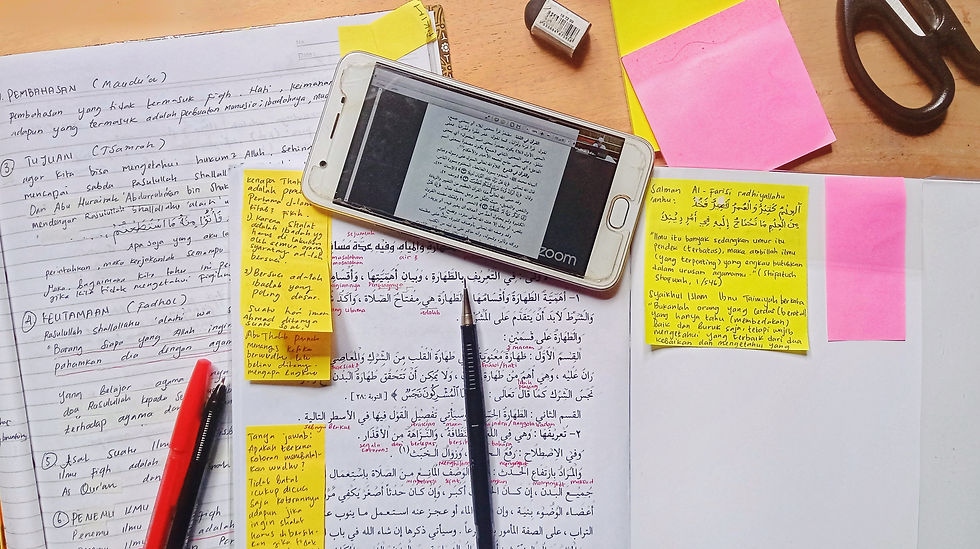How to Write Essays for School
- Anne-Marie Frisby
- Aug 11, 2022
- 4 min read

Many of us are heading into a new semester of schooling. At this time, we are gathering textbooks and pencils, paper and notebooks, and we’re wondering how much more we can get done before class takes up all our time. However, for some of us, this is also a time of great anxiety about starting classes again — especially if we are dreading writing essays. I am a college English major, but I hate essay writing. Most of you can probably sympathize. However, there are a lot of ways to make an essay less painful, or even easy. Here are my tips for successful essay writing!

The first rule of writing essays for school is to always take into account the assignment and your teacher’s expectations. Some teachers care a lot about where you put the thesis, some are strict on the precise rules of grammar, and some care deeply that you vary your sentence structure. If you’ve had this teacher before, look over your past essays and see what they marked up and what they approved of. Also, check the rubric if there is one available. If there isn’t, talk to or email the teacher directly to ask for the rubric.
With all that in mind, research your topic. Depending on what you are writing about, you may need sources. Whenever possible, use primary sources or professional papers. Google Scholar can help you find academic papers to cite and read through. If you aren’t required to have citations, it still can look impressive to have a few. Just make sure that everything you put down is properly cited — you do not want to be caught plagiarizing.

Now comes the drafting portion. Everyone’s brains work differently, and I have a lot of friends who for various reasons struggle to do their homework ahead of time. Still, it will help with the editing portion of the assignment if you have the first draft done as soon as possible. This is where some people tend to differ. When I was in eighth grade, our teachers made us all write out an outline before we turned in any essay. This can be very helpful for some people, but, now that that’s no longer required of me, I almost never outline pages before I write. This is entirely up to what works for you. For me, I just need to know roughly the order in which I will write things, and I don’t have to note it down ahead of time. Some people I know always outline things, others fly by the seat of their pants. I will make one caveat, though. If you write out a first draft without an outline, it will probably need to be reorganized in editing. However, the first draft is not meant to look good. The most important thing about a first draft is that it is there.

Now that you have a draft, you can begin the hard part; editing. This is where you have to juggle grammatical correctness, creativity, literary devices, sentence structure, sentence openers, and factual correctness. It can be a lot to handle. Before you start stressing, though, look over the rubric again. Focus first on what your teacher really cares about. In high school, I had a teacher who really wanted us to vary our sentence openers. So, I would look over the list of sentence opener varieties and work in every variety into each paragraph. I wouldn’t say that’s the best way to write outside of class, but this is for a grade. Write to the teacher.
Here are some general tips, though. Read everything you write aloud — that will help you notice mistakes and weird wordings. Don’t always start your sentences with the “Subject + Verb” structure. If you don’t know the kinds of alternative sentence openers, check out this link. Have short and long sentences. Depending on the teacher, you may need to explicitly state and restate the thesis. Even if this isn’t required, you should know what your thesis is. Finally, in the ending paragraph, you should have some sort of clincher or takeaway to end your paper on a good note. You can elaborate on a previous point in the essay, refer back to the beginning, or even take the information and add a twist at the end. If you are writing about the dangers of social media, you could end with a clincher about the rates of teen depression and anxiety in the years since the popularization of social media. Just make sure your ending works as an ending and doesn’t leave the reader annoyed that there isn’t more.

I can’t promise these tips will make essay-writing fun. Some people love writing essays, but I don’t think I’ll ever be one of them. However, there is one last tip I’d like to leave you off on, and it's the only one that makes essay-writing fun for me. If you have any choice in the matter, always ask your teacher if you can write about something you care about. Make sure they understand what your topic is, but do ask them, even if it seems stupid! If you can make a solid connection between Aristotelian ethics and Pokémon, then make a case to your teacher that you should be able to write about it! If you can write an essay about something you care about, you will write it better.
Are you preparing to head back to school? What are you most excited about? What are you apprehensive about? Talk to us and our community of creatives at our Geneva Groupchat!




Comments